Parasites in dogs
Overview
- Parasites are creatures that need to live in or on another animal in order to survive.
- Some of the most common dog parasites include fleas, worms, ticks, mites, and lice.
- Fortunately, we can prevent most parasites with anti-parasitic (flea and worming) treatments.
- Contact your vet if you think your dog has a parasite problem. Often, the sooner the problem is treated, the quicker the cure.

Fleas are a skin parasite that affect dogs, cats and rabbits. You might see fleas or flea dirt (black dots) on your dog’s skin or in your home. Fleas cause skin problems, spread disease and can also bite humans.
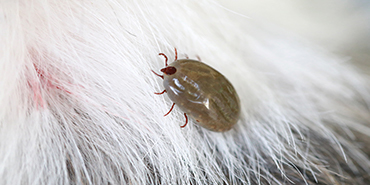
Ticks are small, round parasites which are usually black, pink, purple or grey. They are often mistaken for skin tags and lumps. They attach onto the skin and suck blood. Ticks need to be removed very carefully, otherwise their head can get left behind.

Intestinal worms live in the guts, steal food and cause damage to the gut lining. They don’t usually cause serious illness in adult dogs, but can lead to weight loss, vomiting and diarrhoea. There are two main types of intestinal worms, roundworms (look like white tubes) and tapeworms (that shed small white segments).
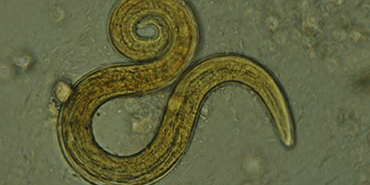
Lungworms live in the heart, blood and lungs. Unlike most other types of worm, they can cause very serious illness and even death. Lungworm is most commonly picked up from eating infected slugs, snails and grass.
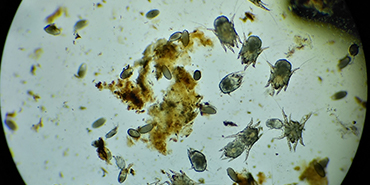
Ear mites are very small parasites that cause very itchy, red, waxy ears and sometimes ear infections. Ear mites can affect dogs of any age but are most common in puppies.

Demodex mites are tiny skin parasites that cause hair loss and red, crusty, scaly skin. Demodex mites tend to cause most problems around the eyes and feet and are especially common in puppies, and dogs with other illnesses.
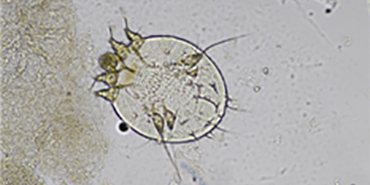
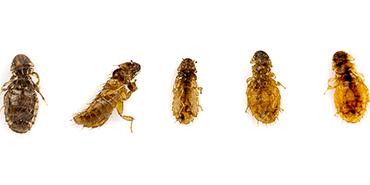
Lice cause itchy, dry, flaky skin and hair loss. They are most common in dogs kept in poor conditions, and very uncommon in pet dogs that live indoors.
Preventing parasites
Fortunately, these days most parasite infestations can be prevented by using regular flea and worming treatments. There a wide variety of flea and worm products available, including tablets, “spot-on’s” and collars. Your dog’s parasite regime will need to be tailored to their lifestyle, and where you live in the country, but is likely to include regular flea, worm and lungworm treatment. Speak to your vet practice for more information.
Consider insuring your dog as soon as you get them, before any signs of illness start. This will ensure you have all the support you need to care for them.
When to contact your vet
Always contact your vet if your suspect your dog has fleas, worms mites or lice. In most cases, the sooner your dog is treated, the better the outcome is likely to be. You should also contact your vet if you want advice on the best products to use, or aren’t sure how often your dog needs to be treated.
Published: August 2020
Did you find this page useful?
Tell us more
Please note, our vets and nurses are unable to respond to questions via this form. If you are concerned about your pet’s health, please contact your vet directly.
Thank you for your feedback
Want to hear more about PDSA and get pet care tips from our vet experts?
Sign up to our e-newsletter
Written by vets and vet nurses. This advice is for UK pets only. Illustrations by Samantha Elmhurst.

